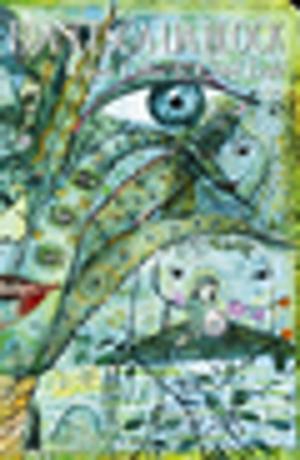| Author: | Milan Dekleva, Matevž Kos | ISBN: | 9789616995054 |
| Publisher: | Slovene Writers' Association | Publication: | July 23, 2017 |
| Imprint: | Language: | English |
| Author: | Milan Dekleva, Matevž Kos |
| ISBN: | 9789616995054 |
| Publisher: | Slovene Writers' Association |
| Publication: | July 23, 2017 |
| Imprint: | |
| Language: | English |
"The poem is controlled silence", wrote Milan Dekleva in his 1990s collection "Preseženi človek" (Out-lived man). This poetic paradox, that has existed from the very beginning of Dekleva's writings and persisted through the three and a half decades of his experimentation in various genres and linguistic situations (including not only fourteen books of poetry but also prose fiction, plays and essays) and indeed remains today, did not emerge from nothing. Dekleva's story is also the story of poetic modernity as it lurks within the metamorphosis of world and Slovenian literature. Dekleva's dialogue with modernity remains a creative conflict with his ancestors, the battle of the poet for self-recognition, for the word that will articulate the uniqueness of his world. What is central to Dekleva's texts – and this can only be said with the benefit of hindsight – also corresponds with the spatial-temporal coordinates of their emergence: with the conceptual-aesthetic, and perhaps even with the ideological-political, conditions of the decades following the Second World War, which is to say through the filter of the poet's individual reason, gaze, and desire. The transition from the 1960s to the 1970s was not only a period that marked the beginning of Dekleva's poetic formation, but also a period of turbulent social happenings, dramatic debates and actions. Dekleva is the poet of the "disenchanted world" and is thus linked to "the twilight of the idols" in which not even the Word of the poet, understood in the old metaphysical way, has been spared.
"The poem is controlled silence", wrote Milan Dekleva in his 1990s collection "Preseženi človek" (Out-lived man). This poetic paradox, that has existed from the very beginning of Dekleva's writings and persisted through the three and a half decades of his experimentation in various genres and linguistic situations (including not only fourteen books of poetry but also prose fiction, plays and essays) and indeed remains today, did not emerge from nothing. Dekleva's story is also the story of poetic modernity as it lurks within the metamorphosis of world and Slovenian literature. Dekleva's dialogue with modernity remains a creative conflict with his ancestors, the battle of the poet for self-recognition, for the word that will articulate the uniqueness of his world. What is central to Dekleva's texts – and this can only be said with the benefit of hindsight – also corresponds with the spatial-temporal coordinates of their emergence: with the conceptual-aesthetic, and perhaps even with the ideological-political, conditions of the decades following the Second World War, which is to say through the filter of the poet's individual reason, gaze, and desire. The transition from the 1960s to the 1970s was not only a period that marked the beginning of Dekleva's poetic formation, but also a period of turbulent social happenings, dramatic debates and actions. Dekleva is the poet of the "disenchanted world" and is thus linked to "the twilight of the idols" in which not even the Word of the poet, understood in the old metaphysical way, has been spared.















